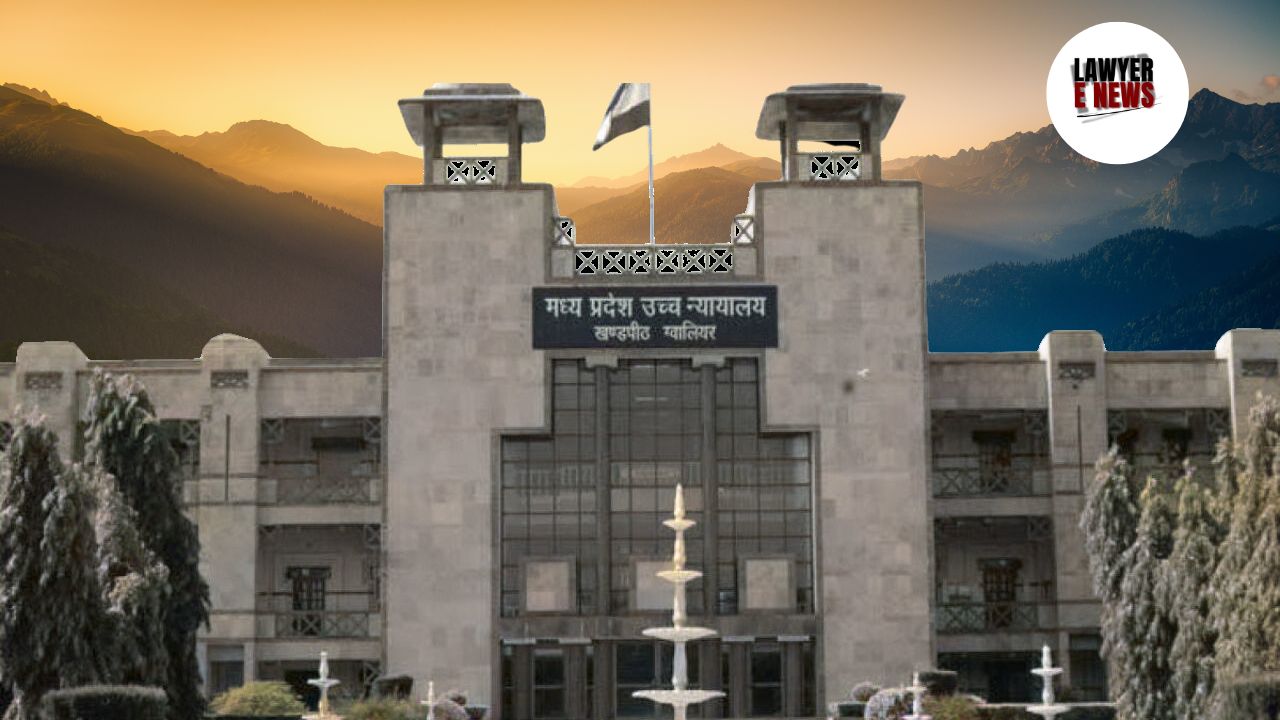-
by Admin
15 February 2026 5:35 AM



Madras High Court finds no evidence of bribery or conspiracy in the case involving municipal officers and a company director over alleged illegal building permissions, quashing the FIRs and ongoing proceedings. On October 22, 2024, the Madhya Pradesh High Court, in a detailed judgment delivered by a bench comprising Justice Vivek Rusia and Justice Prakash Chandra Gupta, quashed FIRs filed under the Prevention of Corruption Act, 1988, and Section 120-B of the Indian Penal Code (IPC). The case involved allegations of criminal misconduct and conspiracy concerning building permissions granted by officials of the Ujjain Municipal Corporation (UMC) and a company director. The petitions for quashing the FIRs were filed by municipal officers Mukesh Ranka, Arun Jain, Divya Singh Jadon, and Meenakshi Sharma. The court held that there was no evidence of bribery, undue advantage, or mens rea, and thus no criminal misconduct or conspiracy could be established.
The FIRs were filed based on allegations that municipal officers and a private company director had conspired to illegally grant building permissions for a commercial-cum-residential project in Ujjain, bypassing the master plan and violating municipal laws under the Nagar Tatha Gram Nivesh Adhiniyam. The complainant, Divya Singh Jadon, claimed that she was a co-owner of the land in question and had neither consented to the sale of her share nor approved the building permissions granted by the UMC. The Lokayukta, following a complaint, conducted an inquiry and recommended filing of the FIRs under Sections 13(1)(a), 13(1)(b), and 13(2) of the Prevention of Corruption Act and Section 120-B of IPC.
The core legal issue was whether the actions of the municipal officers in granting the building permissions amounted to criminal misconduct under the Prevention of Corruption Act and whether a conspiracy under Section 120-B of IPC could be established.
The petitioners argued that the FIRs were filed without sufficient evidence to prove any illegal gratification, bribes, or conspiracy. They maintained that while there may have been procedural lapses in granting the permissions, these did not amount to criminal misconduct as defined under the Prevention of Corruption Act.
The court noted that the FIRs lacked concrete evidence of bribery or illicit gains. The court emphasized that procedural irregularities or administrative lapses in the granting of building permissions could not, in isolation, amount to criminal misconduct unless there was clear evidence of mens rea or undue enrichment.
The court also pointed out that the complainant had not challenged the building permissions in a civil court, which would have been the appropriate legal recourse. Instead, the complainant resorted to filing a complaint with the Lokayukta, leading to a flawed criminal prosecution.
"Mere procedural irregularities in granting permissions do not constitute criminal misconduct under the Prevention of Corruption Act unless accompanied by mens rea or illicit benefits," the court ruled [Para 19].
Quashment of FIRs: No Evidence of Conspiracy or Corruption
The court found no evidence to support the allegations of a criminal conspiracy under Section 120-B of the IPC. It held that the officials involved had followed the due process of applying for and granting the building permissions, even if there were some administrative shortcomings.
The court also highlighted the absence of any financial transactions or bribery between the municipal officers and the company director, which is crucial to establishing an offense under the Prevention of Corruption Act.
"Without evidence of corrupt motives or unlawful enrichment, procedural lapses alone do not justify prosecution under Section 120-B of the IPC," the court added [Para 25].
The Madhya Pradesh High Court quashed the FIRs and all subsequent proceedings under the Prevention of Corruption Act and Section 120-B of the IPC, ruling that no criminal misconduct or conspiracy was made out. The proceedings against all the petitioners, including Mukesh Ranka, Arun Jain, Divya Singh Jadon, and Meenakshi Sharma, were terminated.
The court also remarked on the improper role of the Lokayukta's Legal Advisor, who conducted the inquiry instead of providing legal opinions, and suggested that such practices could undermine judicial independence.
The Madhya Pradesh High Court’s ruling highlights the importance of differentiating between administrative lapses and criminal misconduct. The judgment reiterates that mere procedural irregularities in official processes, such as granting building permissions, do not amount to criminal offenses unless supported by evidence of illicit gains or corrupt motives.
Date of Decision: October 22, 2024
